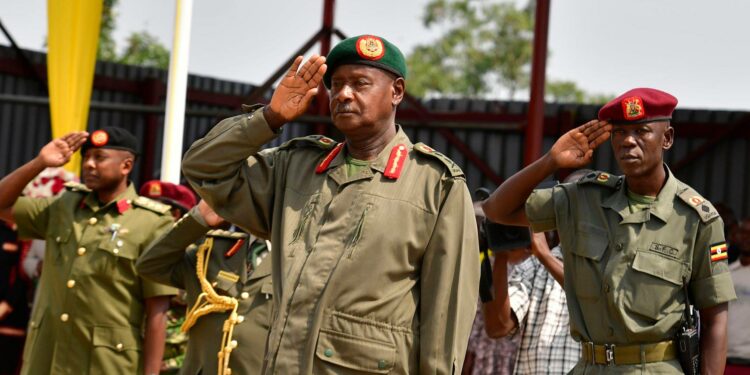- The debate over the Uganda People’s Defence Force (UPDF) intervention in South Sudan has resurfaced, spotlighting the fragile peace in the world’s youngest nation. Recently, South Sudan’s stability faced yet another test when Vice President Riek Machar sought to oust President Salva Kiir. What began as a political power struggle quickly spiraled into a tribal conflict, pitting the Nuer against the Dinka in a violent cycle of revenge killings.
This escalation echoes the devastating civil war that erupted in 2013, claiming countless lives and displacing millions. Without external intervention, the situation could have deteriorated further, exacerbating an already dire humanitarian crisis.
Eastern Africa owes much of its relative stability to Uganda’s President Yoweri Museveni. For decades, he has positioned Uganda as a stabilizing force in a region plagued by conflict.
The UPDF’s involvement in South Sudan exemplifies this role. When violence flared, Uganda’s military intervention—though costly in blood and resources—helped prevent a complete collapse of order. Critics often focus on the immediate price of such actions, overlooking the broader implications. Without the UPDF’s presence, South Sudan might have descended into chaos, triggering a refugee exodus far worse than the region has already endured. Uganda currently hosts over 1.5 million refugees, primarily from South Sudan and the Democratic Republic of Congo (DRC). This influx has strained resources and brought challenges like disease outbreaks, including Ebola, yet the international community has offered little recognition or support.
Museveni’s leadership has been a linchpin for Uganda and its neighbors. Before he came to power in 1986, Uganda was a nation fractured by over a century of turmoil—tribal wars, colonial exploitation, and post-independence instability under leaders like Idi Amin.
Museveni restored peace and laid the foundation for Uganda’s emergence as a regional influencer. His influence extends beyond borders, offering wisdom, troops, and resources to quell conflicts across the Great Lakes region and the Horn of Africa. From Somalia to Rwanda, Burundi to the DRC, and South Sudan to the Central African Republic, Uganda has played a pivotal role in peacekeeping and mediation efforts. Without Museveni’s steady hand, the region’s volatility—marked by wars in Somalia, Ethiopia’s internal strife, and Kenya’s post-election violence—could have spiraled further out of control.
The Great Lakes region and the Horn of Africa have long suffered the indignity of war, a scourge that robs communities of dignity and hope. Museveni’s pan-African vision has sought to counter this. In Somalia, Uganda spearheaded the African Union Mission (AMISOM), helping stabilize a nation ravaged by decades of conflict. In Rwanda and Burundi, his diplomatic efforts supported post-genocide reconciliation. Even in South Sudan, where peace remains elusive, Uganda’s interventions have bought time for dialogue. These actions reflect a commitment to collective African dignity, a principle Museveni has championed despite resistance from short-sighted critics.
Uganda may appear small on the map, but under Museveni’s stewardship, its influence has grown exponentially. His critics argue that prolonged leadership stifles democracy, yet they cannot deny the stability he has brought to a once-fractured nation and its volatile neighborhood. Regional leaders would do well to adopt his pan-African outlook, prioritizing cooperation over narrow national interests. The alternative—unchecked conflict—would only deepen the region’s wounds, driving more refugees across borders and perpetuating cycles of poverty and disease.
Museveni’s legacy is not without flaws, but the stability he has fostered is a gift too often taken for granted. Eastern Africa’s debt to him lies in the wars averted, the lives saved, and the dignity preserved amidst a turbulent history.
Do you have a story in your community or an opinion to share with us: Email us at editorial@watchdoguganda.com











